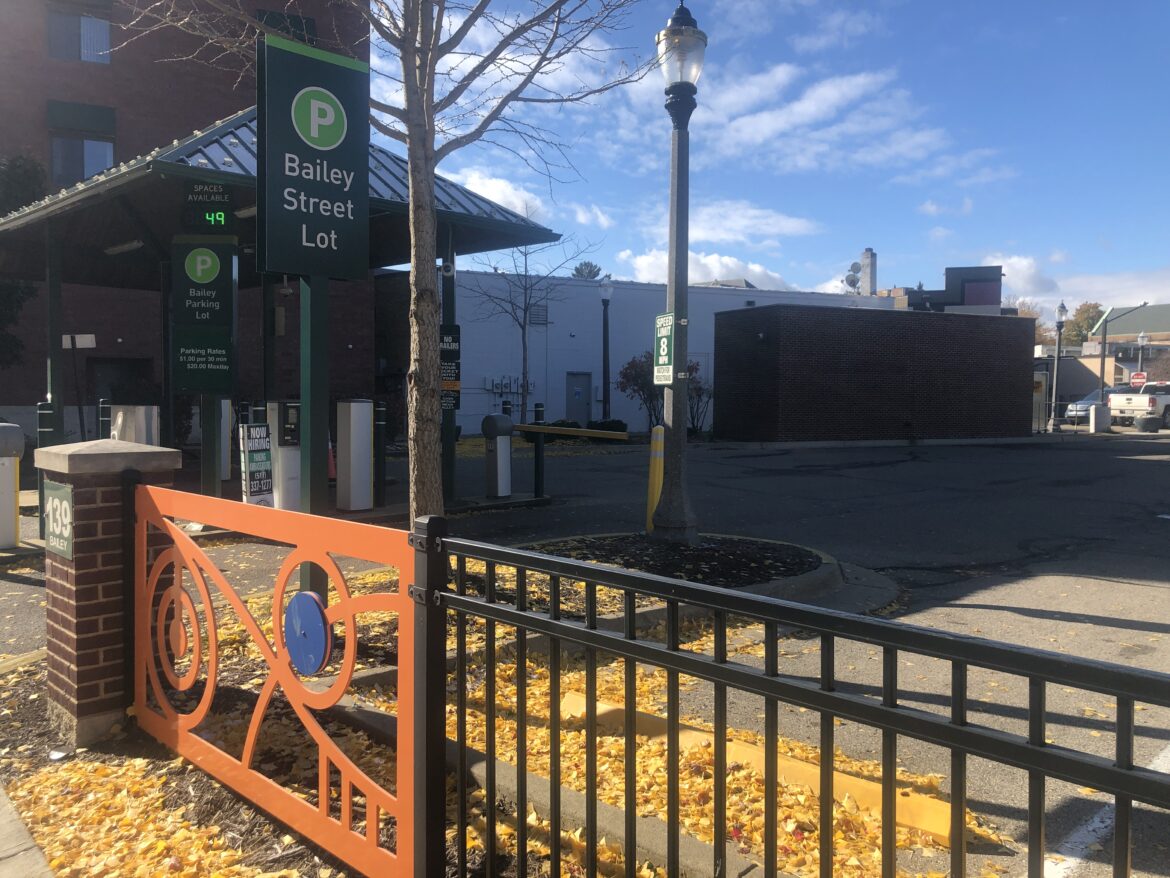EAST LANSING, Mich.—On Oct. 17, the East Lansing City Council denied a proposal that would allow the construction of a five-story “workforce housing” project built by American Community Developers (ACD) on the 500-Block of Albert Avenue, also known as Bailey Lot 11. Despite the vote, the city council still plans on developing the area. The big requirement for the future development of the Bailey Lot, according to East Lansing councilmember Michael Krueger, is maintaining parking availability for residents and employees.
In the 2-3 vote, the city council voted down the proposal allowing ACD to develop the Bailey Lot, and some council members agreed that parking is necessary for that space.
“I believe it is necessary to have parking behind the business on Grand River in order for them to survive and thrive,” said Krueger after the meeting.
Some residents and business owners don’t want the parking that currently occupies the Bailey Lot to be developed at all. The Citizens to Protect East Lansing Access (CPELA), a group of East Lansing businesses and residents that would like to keep the Bailey Lot as parking, believe that the Bailey Lot is crucial to consumer traffic to the businesses located on Grand River Avenue. The vote to deny the ACD development was a big step for CPELA, and it will likely open opportunities for other development projects to step in.
“I do believe that [City Council] is all for small businesses, that’s why I think they turned it down,” said Paul Martins, manager of the Wild Goose Inn and CPELA member. Martins also said that some of the council members own small businesses, so the council would most likely make choices that align with the CPELA.
The argument for keeping the lot the same is based heavily on the requirements of the local businesses in the area. According to Martins, businesses that surround the Bailey Lot are heavily impacted by the access that the lot provides, so any other development in that location would harm the surrounding businesses.
“In a perfect world [Lot 11] would just stay the same,” said Martins, “but it doesn’t seem to be going that way.”
The businesses on Grand River Avenue have already been affected by the construction projects scattered throughout the city. To those who agree with the council’s vote, the removal of Lot 11 could cause even more economic damage to businesses and would create a less desirable destination for visitors and tourists.
Moving forward, the city council plans on trying to create a compromise between ACD and local businesses.
“We would still like to see workforce housing in that spot and are working with ACD to achieve that,” said Krueger.
However, failure to find a compromise could allow other developers to use this opportunity to propose a new development plan for the city. According to their website, ACD is the “#1 Most Affordable Housing in Michigan,” and they own over 60,000 square feet of land throughout the state of Michigan. In their proposal to the Planning Commission back in August, ACD said their initial rent rates would be from $980 – $1195.
Unless ACD can create a proposal for affordable workforce housing that also allows for access to the businesses on Grand River Avenue, the future of the Bailey lot remains uncertain.
